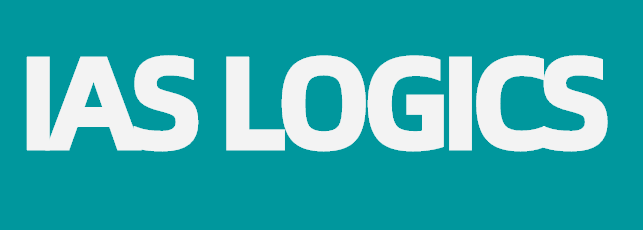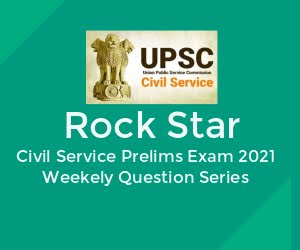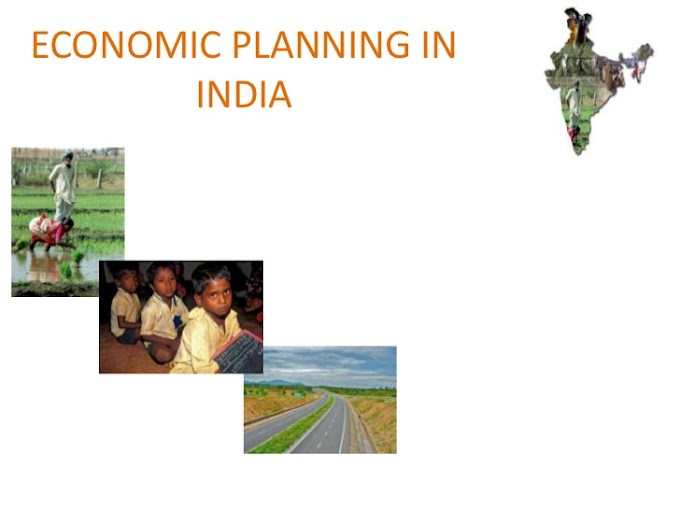With the changing face of the civil services examination from year 2011, when Civil Services Aptitude Test (CSAT) will replace the present scheme of preliminary examination, a lot of frequently asked questions regarding the selection of the optional papers will be put to rest for good. For instance, with the implementation of the CSAT (which means elimination of the optional subject from the preliminary exam) the following questions will not arise:
- Do certain optionals have better prospects at the preliminary exam?
- Is it necessary to retain the prelims optional for Mains?
- Some optionals are paying at the preliminary examination but not at Mains. Thus, is it better to change optionals at the Mains stage?
- When the same optional is chosen for the prelims & mains exam, is there a need of preparing that optional for mains?
However, since there will be no change in the pattern of the Mains Examination wherein it will be required to opt for two optional subjects (same as in the present structure), “which optional subject should I take?” will remain the starting point for every aspirant in his/her IAS exam preparation strategy.
FAQ 1: List of optional subjects in the Mains exam.
Ans: For the optional papers in the Main Examination, UPSC has a list of about twenty-six (26) subjects out of which two subjects have to be selected by a candidate.
(1) Agriculture, (2) Animal Husbandry & Veterinary Science, (3) Botany, (4) Chemistry, (5) Civil Engg., (6) Commerce & Accountancy, (7) Economics, (8) Electrical Engg., (9) Geography, (10) Geology, (11) Indian History, (12) Law, (13) Mathematics, (14) Mechanical Engg., (15) Medical Science, (16) Philosophy, (17) Physics, (18) Political Science, (19) Psychology, (20) Public Administration, (21) Sociology, (22) Statistics, (23) Zoology, (24) Anthropology, (25) Management,
(26) Literature of one of these languages:
(a) Arabic, (b) Assamese, (c) Bengali, (d) Chinese, (e) English, (f) French, (g) German, (h) Gujarati, (i) Hindi, (j) Kannada, (k) Kashmiri, (l) Konkani, (m) Malayalam, (n) Manipuri, (o) Marathi, (p) Nepali, (q) Oriya, (r) Pali, (s) Persian, (t) Punjabi, (u) Russian, (v) Sanskrit, (w) Sindhi, (x) Tamil, (y) Telugu, (z) Urdu
FAQ 2: Which combinations are not allowed in IAS Examination?
Ans: The combinations not allowed are:
- Political Science & International Relations and Public Administration
- Commerce & Accountancy and Management
- Anthropology and Sociology
- Mathematics and Statistics
- Agriculture & Animal Husbandry and Veterinary Science
- Management and Public Administration
- Any two branches of engineering
- Animal Husbandry & Veterinary Science and Medical Science
- Combination of two literatures in the list above
FAQ 3: How should I select my optional subjects? Which optional subjects should I take?
Ans: It is extremely important that the correct optional subjects are taken up and it is advised that aspirants take optionals for which the success rate in the recent past has been good. Arriving at the right optionals set is not that simple, however, an aspirant must evaluate his/her Interest in a particular subject.
Interest: Choose a subject that you have an (a) aptitude for and (b) the one in which you have more than just a passing interest. Aspirant should be prepared to spend 100s of hours with the chosen subject.
Availability of Resources: Secondly, find out how easily is the study material, guidance, coaching, etc available in a particular optional subject. Availability of quality guidance makes learning of the subject easy.
Subject Knowledge: Graduation/post-graduation subject should be taken if you are comfortable with it. That will certainly help in the preparation since you have good knowledge in the subject area. But do not take it if you had only a passing interest in it in college.
Before finalizing an optional:
- Analyse the syllabus in detail
- Analyse the last ten years question paper to figure out a subject’s difficulty level
- Don’t take a subject just because everyone else is taking it
- Science subjects should be handled by people with ONLY science background
- Art subjects can be handled by ALL
Most Popular Optionals in the IAS Exam
I have written a post on selecting the right optionals for IAS, this information regarding the subjects opted by candidates in IAS Mains should help you further in choosing your optional subjects. The figures below are for the year 2008 and 2009 Mains and for reference purpose only. Nowhere am I suggesting you to opt for these subjects just because they are popular.
| Year/Subject | 2008 | 2009 |
|---|---|---|
| Hindi Litt. | 954 | 925 |
| Pali Litt. | 249 | 306 |
| Tamil Litt. | 224 | 195 |
| Geography | 4003 | 3901 |
| History | 3823 | 3822 |
| Philosophy | 2048 | 2025 |
| Pol. Science | 1306 | 1314 |
| Psychology | 1058 | 1017 |
| Pub. Admn. | 3165 | 3779 |
| Sociology | 1527 | 1581 |
| Zoology | 478 | 428 |
In this table I’ve listed the most popular Literature subjects opted in the IAS mains along with the most popular optionals overall. As you can see Hindi Litt. was opted by more than 900 candidates in 2008 as well as 2009 which isn’t surprising as a large number of candidates from the Hindi-speaking states appear for the IAS exam.
Pali is popular owing to its limited syllabus and coaching options available. No wonder its popularity is on the upswing with every Mains. Likewise Tamil Litt. is opted by candidates from Tamil Nadu.
Coming to the ‘conventional subjects’ Geography is the most preferred optional among IAS aspirants followed by History, Public Administration and Philosophy. While History and Pub Ad are popular choices among many aspirants, I was pleasantly surprised to discover that Philosophy was opted by higher number of candidates than even Sociology and Psychology.
Also you can observe a big jump in Pub Ad’s popularity and by the time figures for 2010 and 2011 Mains are made public by UPSC, it could well have overtaken Geography to become the most popular optional in the Mains.
Success Rate of Optionals in IAS Exam
Merely stating the popular optionals does not serve the purpose unless their success rate is also discussed. Success rate is based on the number of candidates who appeared for the mains taking a particular subject and those who were finally recommended for selection. While subjects like Assamese Litt. had the highest rate of 40 percent this is largely due to the fact that only 5 candidates opted for it in the Mains of which 2 were finally recommended. But such a small size does not reflect the real picture which can only be clear when comparing the most popular optionals which is what the following table does.
Note: The figures are for the 2008 Civil Services Exam.
| Optional Subject | Candidates Appeared | Candidates Recommended | Success Rate (Percent) |
|---|---|---|---|
| Assamese Litt. | 5 | 2 | 40 |
| Punjabi Litt. | 19 | 5 | 26.3 |
| Agriculture | 220 | 41 | 18.6 |
| Gujarati Litt. | 42 | 7 | 16.7 |
| Kannada Litt. | 84 | 14 | 16.7 |
| Marathi Litt. | 42 | 7 | 16.7 |
| Medical Science | 98 | 16 | 16.3 |
| English Litt. | 40 | 6 | 15 |
| Urdu Litt. | 29 | 4 | 13.8 |
| Tamil Litt. | 225 | 29 | 12.9 |
| Animal Husb. & Veterinary Science | 65 | 8 | 12.3 |
| Economics | 326 | 37 | 11.3 |
| Psychology | 1061 | 116 | 10.9 |
| Anthropology | 345 | 37 | 10.7 |
| Public Administration | 3201 | 337 | 10.5 |
| Literature of Sanskrit Language | 122 | 10 | 8.2 |
| Literature of Malayalam Language | 67 | 5 | 7.5 |
| Literature of Pali Language | 255 | 18 | 7.1 |
| Physics | 239 | 16 | 6.7 |
| Political Science | 1320 | 85 | 6.4 |
| Literature of Telugu Language | 147 | 9 | 6.1 |
| Geography | 4049 | 236 | 5.8 |
| Literature of Hindi Language | 974 | 56 | 5.7 |
| Sociology | 1555 | 89 | 5.7 |
| Chemistry | 124 | 7 | 5.6 |
| Commerce and Accountancy | 266 | 15 | 5.6 |
| History | 3870 | 212 | 5.5 |
| Law | 365 | 19 | 5.2 |
| Philosophy | 2092 | 84 | 4 |
| Zoology | 484 | 18 | 3.7 |
| Mathematics | 277 | 8 | 2.9 |
One glance at the table and its clear that Literature subjects have the highest success rate in the Civil Services examination so candidates yet undecided on selecting the right optional for IAS should have a good look at Literature optionals provided they have a sound background in the subject.
Coming to the popular optionals Public Administration had a success rate of 10.5 percent as compared to just 5.8 percent of Geography in the 2008 IAS exam. No wonder 2009 Mains witnessed a big jump in the number of candidates opting for Pub Ad. This trend is continuing for the last two years, I can safely state. Psychology too had a very good success rate and its popularity is correspondingly on the rise.
I hope these facts and figures about the IAS exam will be useful to you in selecting your optionals and for other reference purposes. To your success!





